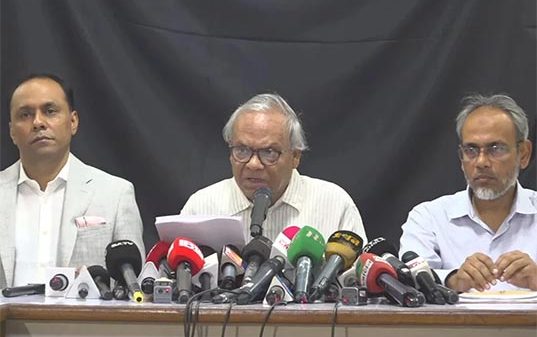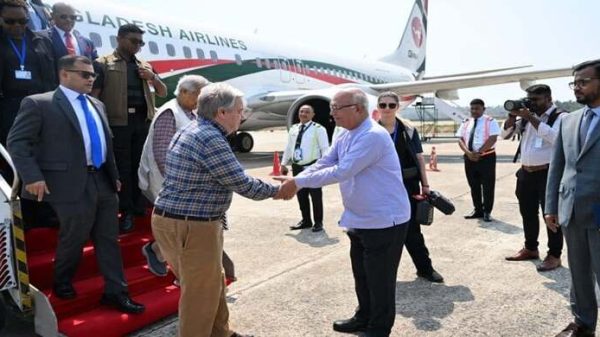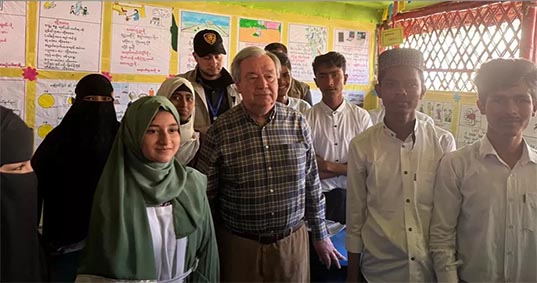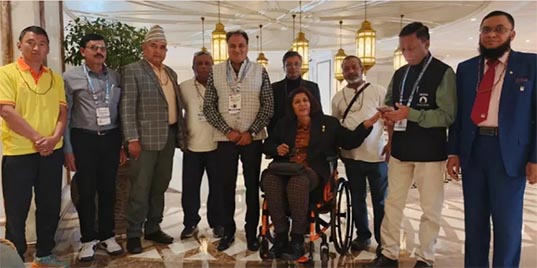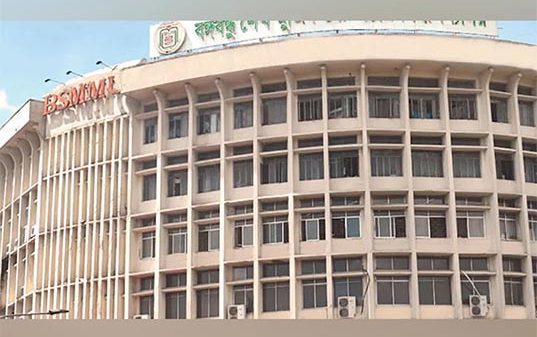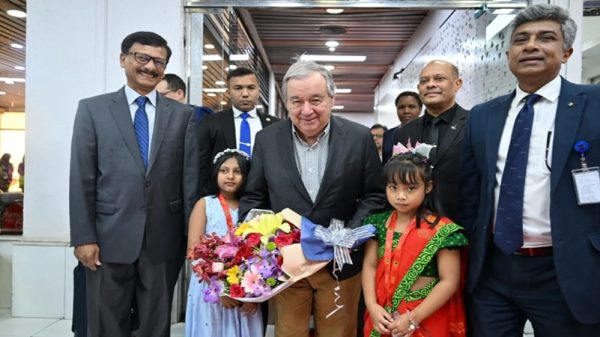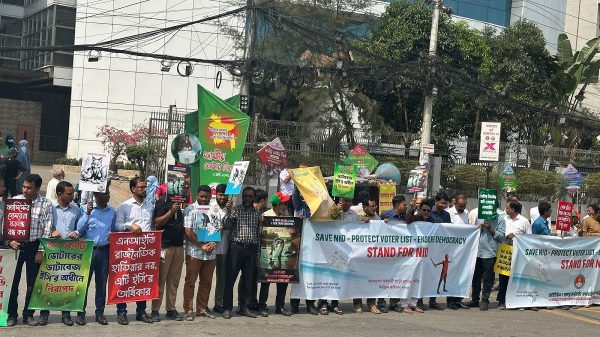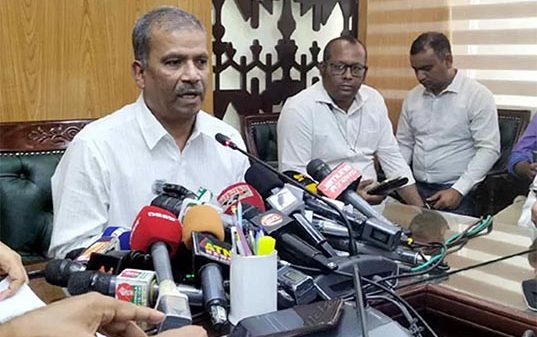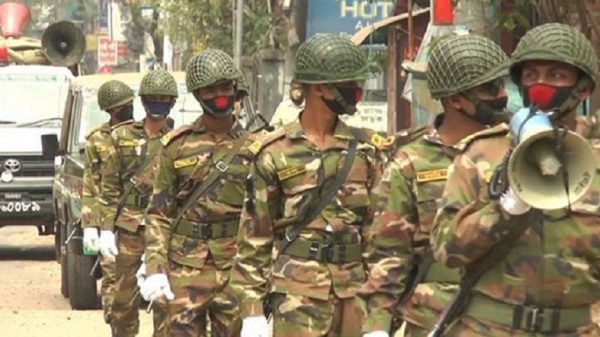Speakers for stepping up efforts supporting government to address human trafficking

- Update Time : Friday, 1 March, 2024, 05:46 pm
- 79 Time View
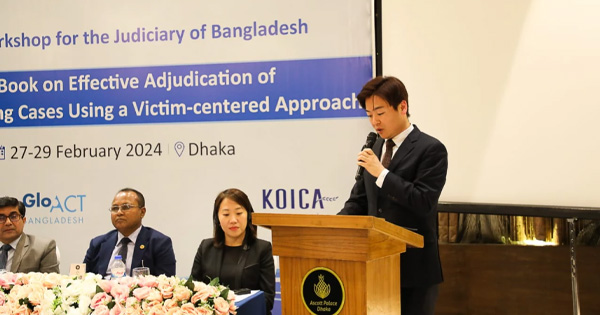
Online Desk: Speakers at a programme have laid emphasis on stepping up efforts supporting the government of Bangladesh to address human trafficking.
A series of workshops carried-out over three days ( 27- 29 February) that brought together judges and public prosecutors from the seven Divisions of Bangladesh including the most trafficking prone districts of the country.
The workshops focused on seeking an exchange of experiences, addressing common challenges and providing input from the learned participants on the Bench Book on Effective Adjudication of Human Trafficking Cases Using a Victim-centered Approach, jointly developed by the International Organization for Migration (IOM) and United Nations Office on Drugs and Crime (UNODC).
The Bench Book is developed as part of the technical guidelines on the interpretation and full implementation of the Prevention and Suppression of Human Trafficking Act (PSHTA) enacted in 2012; a landmark in Government of Bangladesh’s commitment to combatting human trafficking in persons in the country.
This is a timey and critical initiative supported jointly under the a comprehensive counter trafficking programme to address human trafficking in Bangladesh funded by the Korea International Cooperation Agency (KOICA) implemented by IOM, and the Global Action against Trafficking in Persons and Smuggling of Migrants – Bangladesh (GLO.ACT – Bangladesh) project funded by the European Union and implemented by UNODC.
Speaking as the chief guest, Secretary of Law and Justice Division, Ministry of Law, Justice and Parliamentary Affairs Golam Sarwar has said that the judiciary is a key player when it comes to the interpretation of the legislation ensuring victim friendly trial procedures and speedy disposal of human trafficking cases.
“Therefore, this Bench Book aims to serve as a legal resource guide on the adjudication of human trafficking cases in Bangladesh,” he said.
AKM Tipu Sultan, Additional Secretary, Public Security Division, Ministry of Home Affairs, applauded the organizers and noted that “the Bench Book marks a significant milestone in our journey towards achieving the shared goal of eradicating human trafficking. It is imperative that we continue to build upon the knowledge and insights gained through this endeavour”.
F. Nusrath Ghazzali, Officer in Charge, IOM, reiterated that IOM has always stood steadfast to support the government’s commitment to combat human trafficking, the Bench Book being one of several efforts towards this objective.
“Similar tools such as the manuals for law enforcement agencies and the Counter Trafficking Committees, are being finalized with the active participation of relevant government stakeholders”.
“The Bench Book is one of our strongest tools that we have developed – we at UNODC are truly proud to have the opportunity to support you in your important work in combatting trafficking,” said Jee Aei Lee, Legal and Policy Officer, UNODC.
“The development and implementation of the Bench Book represents a critical step in equipping the judiciary with the necessary tools and knowledge to effectively adjudicate human trafficking cases, ensuring the rights of victims,” commented Hyunwoo Yang, Deputy Country Director, KOICA at the closing of the workshop.
The Bench Book on Effective Adjudication of Human Trafficking Cases Using a Victim-centered Approach will reflect the outcome of the discussions and suggestions discussed by the 49 (11 female, 38 male) judges and prosecutors during the workshop, andand the Bench Book will be submitted to the to the Ministry of Law, Justice and Parliamentary Affairs for finalization and dissemination amongst the relevant judges and public prosecutors.

